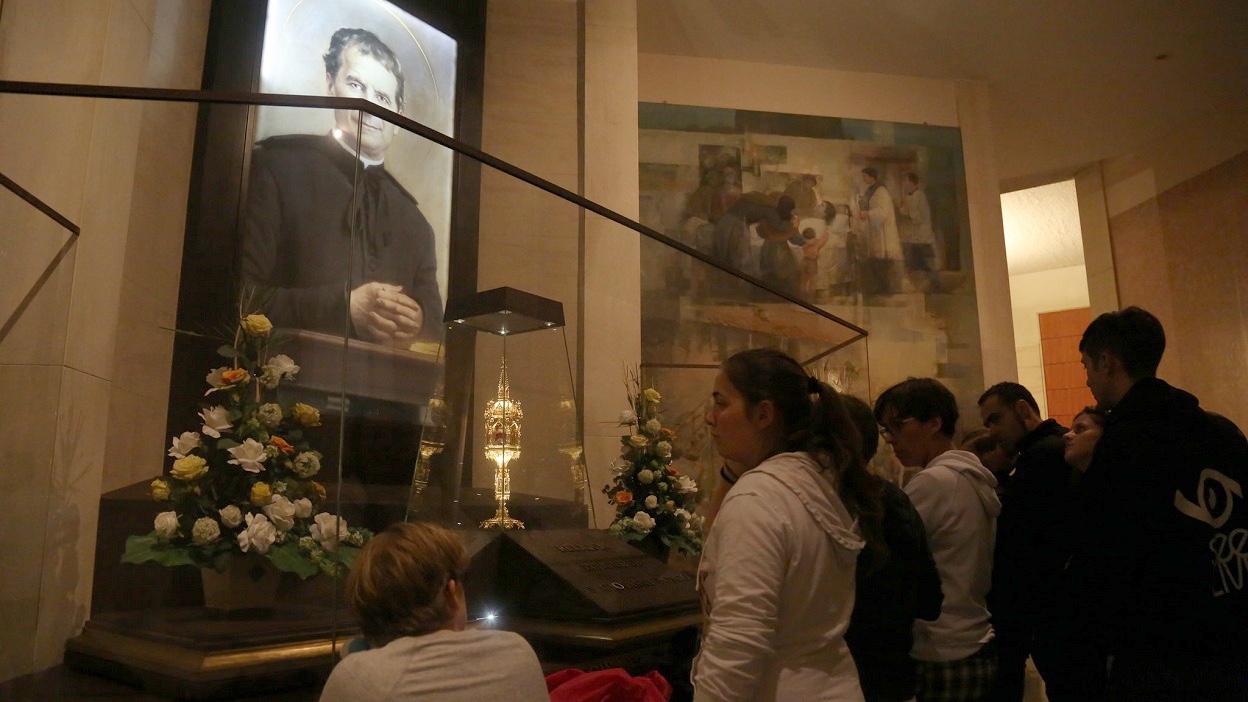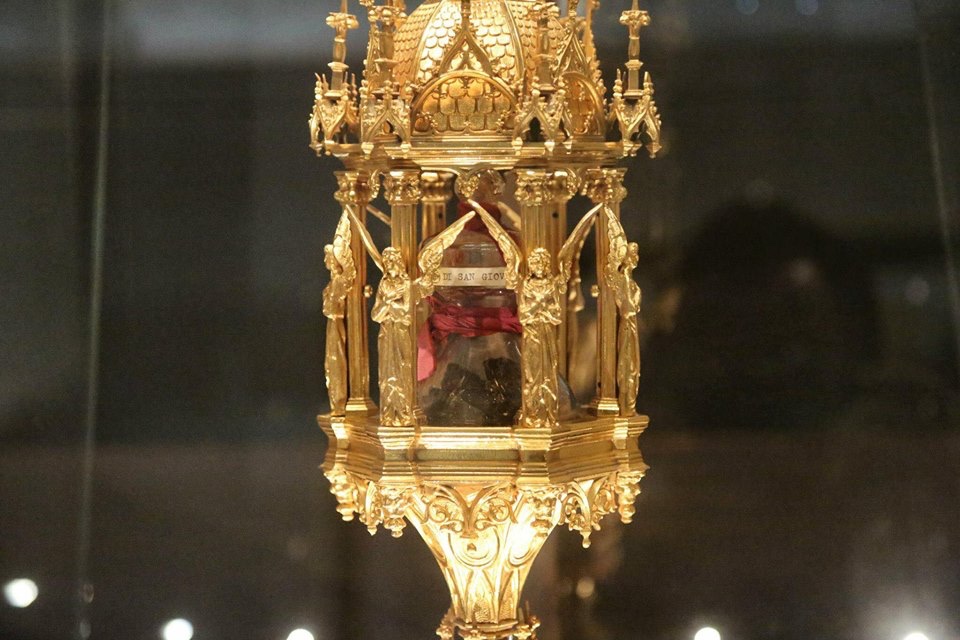Saint John Bosco's Brain Vanishes from Italian Basilica

When pilgrims lined up in a church in northern Italy to pray before the relic of St. John Bosco, the revered founder of the Salesian religious order, on Saturday (June 3), they encountered a sign with an unexpected message: "Closed. Under construction."
However, it was clear that no construction work was going on in the church, called the basilica of Castelnuovo, located near Turin. And so, as pressure mounted over the puzzling sign, the church revealed a shocking truth: Someone had stolen preserved brain bits of a saint.
"The relic of St. Bosco has been stolen," Rev. Moreno Filipetto, a spokesman for the Salesian religious order, said in a statement. "To avoid hindering the ongoing police investigation, no other information will be provided." [Saint Science: The 10 Most Controversial Miracles]
The mysterious theft probably occurred just before the basilica's closing time on Friday (June 2), according to reports in Turin's newspaper, La Stampa. The thief, disguised as a pilgrim, likely just walked out of the church with a glass case containing pieces of the preserved brain of St. John Bosco, popularly known as Don Bosco, La Stampa reported.
Satanic rituals or ransom may lie behind the theft, according to reports in the Italian press.

"We do not really know why the relic was stolen," Filipetto told Live Science in Italian. "We have the utmost trust in the work of the police; they are working hard on the case."
However, Filipetto said he could not confirm the details of the case.
Sign up for the Live Science daily newsletter now
Get the world’s most fascinating discoveries delivered straight to your inbox.
Indeed, the case is still a mystery, said Fr Francesco Cereda, vicar of the Rector Major. (Cereda is the vicar, who takes the Rector Major's place whenever he is absent or impeded; he's second from the top of this Salesian hierarchy.)
"To date, there is nothing new in the investigations regarding those responsible for the theft of Don Bosco's relics," Cereda said.
Born in Castelnuovo, Italy, on Aug. 16, 1815, Don Bosco devoted his life to helping deprived children. In 1859, he founded the Society of St. Francis de Sales, better known as the Salesians or Salesians of Don Bosco, to help the poor and homeless children during the Industrial Revolution. The religious order has grown to become the second-largest order in the Catholic Church. According to Salesian Missions, the order is regarded as the single largest provider of vocational and technical training in the world, operating more than 3,200 schools and technical training centers, more than 70 colleges, more than 90 clinics and a hospital, and more than 330 orphanages and shelters.
Don Bosco died in 1888 and was canonized in 1934 by Pope Pius XI. He is one of the most venerated saints, and each year, more than 600,000 pilgrims visit the basilica of Castelnuovo, according to La Stampa.
Body parts belonging to holy figures are often displayed in Catholic churches as "tangible elements to favor the invocation of the saint," Cereda said. "Don Bosco is loved and invoked for the young people, especially the poor and marginalized," he added, referring to invocations, or prayers.
The person who took the relic should "give it back immediately and without conditions," Monsignor Cesare Nosiglia, archbishop of Turin, said in the statement, "so that this painful page can be turned, and we can duly continue to honor Don Bosco's memory in his rightful birthplace," he added, as translated to English.
This is not the first time that thieves have targeted body parts of saints. Past raids of holy relics include the preserved heart of St. Laurence O'Toole, Dublin's patron saint, which was stolen in 2012 from the city's cathedral, as well as a vial of blood from Pope John Paul II, taken in 2014 from a chapel near L'Aquila, in central Italy.
Editor's Note: This article was updated to correct a statement saying that the vicar was the head of the Salesian order. The Rector Major has that position.
Original article on Live Science.
NASA's Lucy spacecraft snaps first close-ups of weird peanut-shaped asteroid
Scientists create ultra-tough copper alloy that is stronger than steel and can withstand temperatures of 1500 F
Extreme 'zombie star' capable of ripping human atoms apart is shooting through the Milky Way — and nobody knows where it came from









